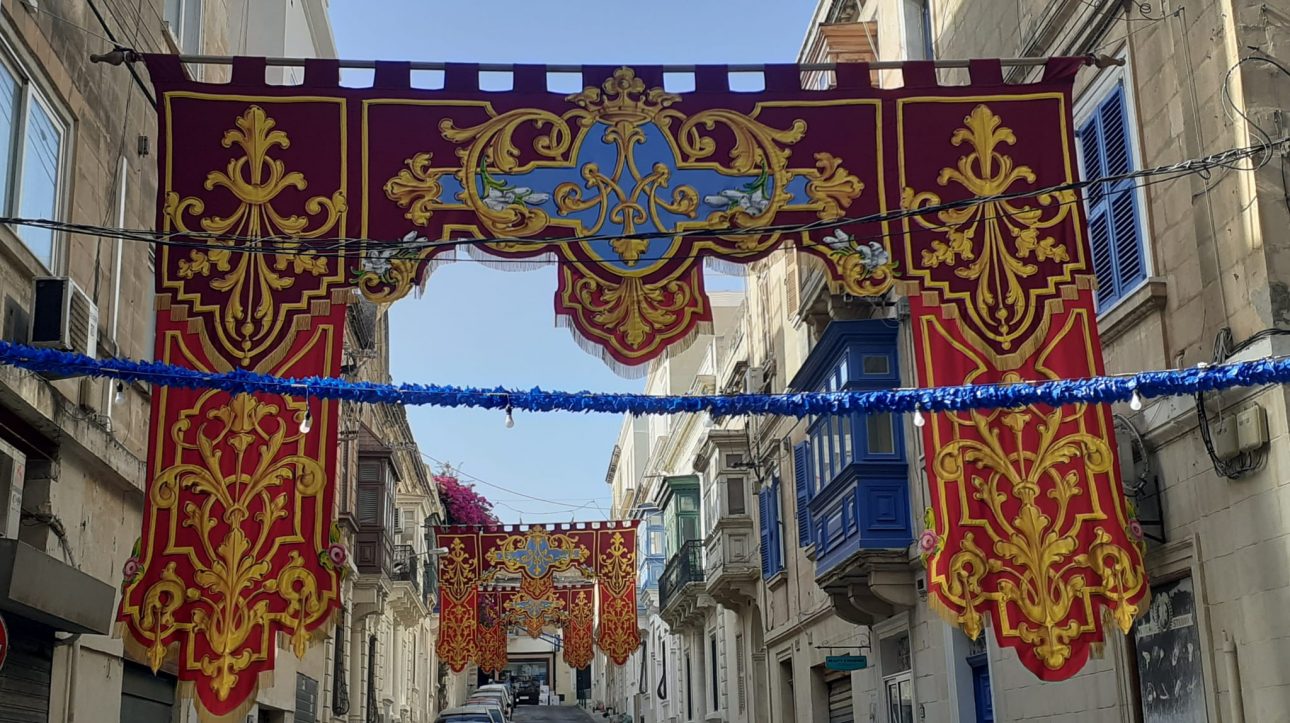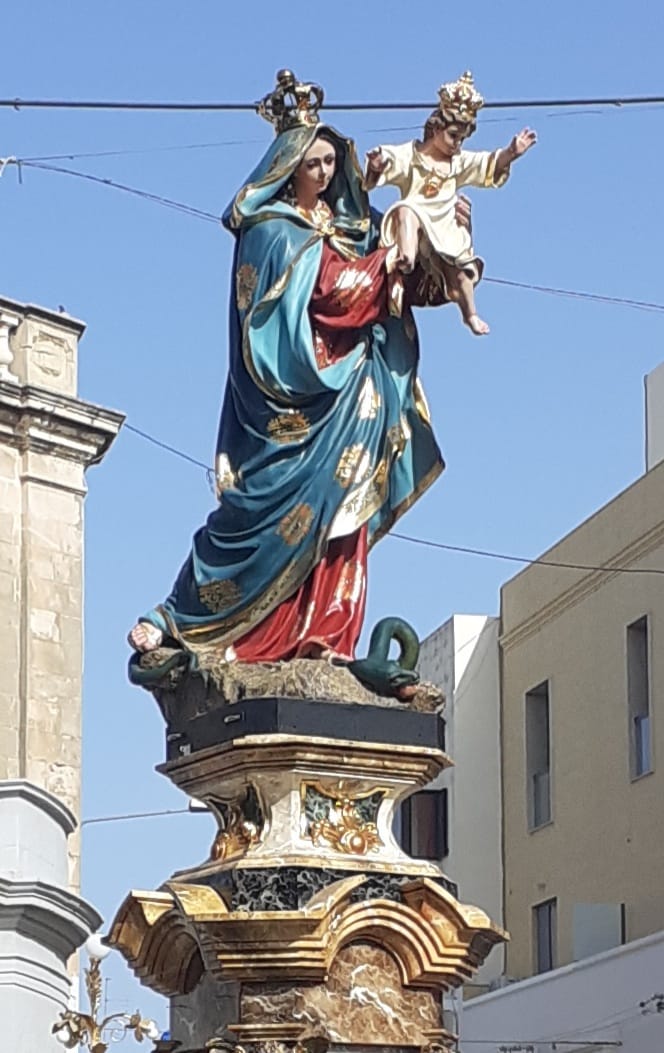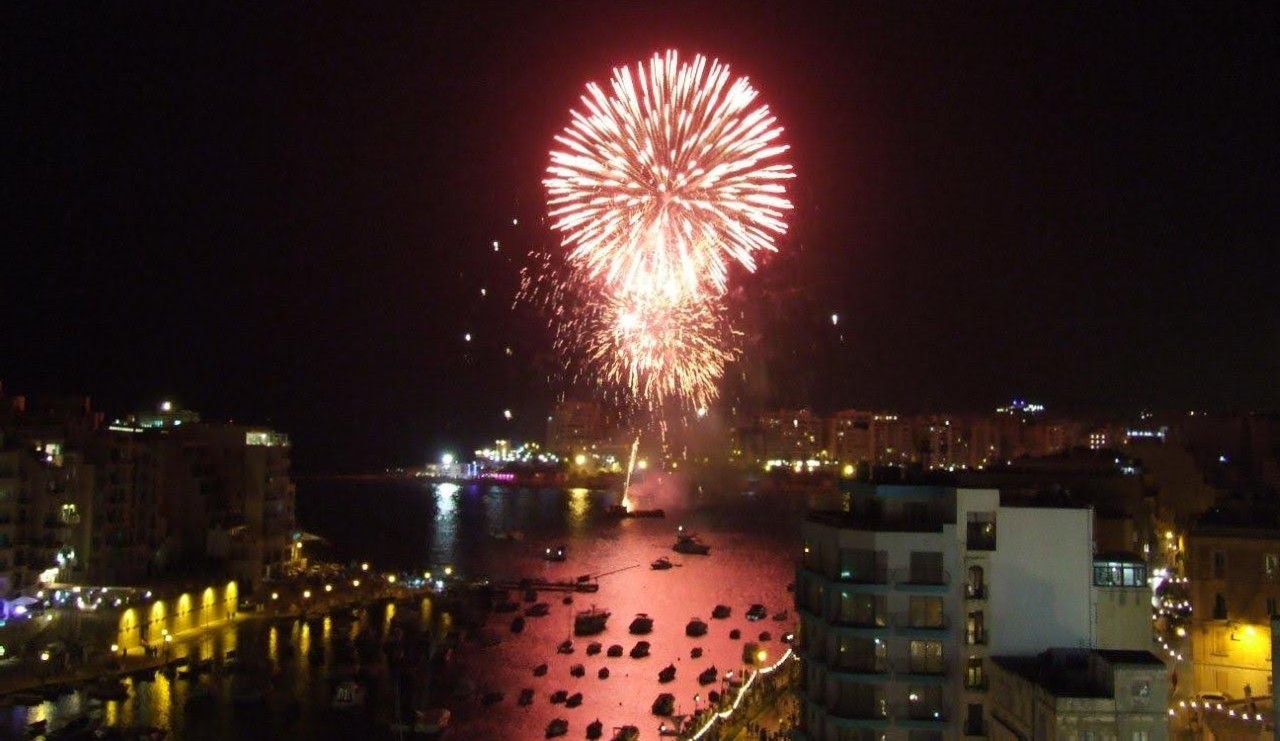The Public Holidays in Malta
Malta is the country with the most public holidays in Europe! Over 90 percent of the Maltese are Catholic, which is one reason for the 14 religious public holidays per year. During a stay in Malta, it is therefore very likely to experience one of them. For this case, this blog gives a short overview of these days with some remarks on the ones which are just nationally known.

New Year’s Day on the 1st of January is an internationally known public holiday.
The Feast of St Paul’s Shipwreck is the second in the year. The story behind this day is that St. Paul established the first Christian community on Malta in the first century AD. Unfortunately, one day a storm blew his ship against Malta’s coast. That was the 10th of February on which day every year religious ceremonies and festivities are celebrated on the streets around Valletta.
On the 19th of March, the Feast of St Joseph is celebrated in honor of St. Joseph, the husband of Mary and stepfather of Jesus. This day is celebrated most in Mdina and Rabat where a statue of St. Joseph is carried from the Sanctuary to the Church of St. Mary of Jesus accompanied by many celebrating people and fireworks. This day is also celebrated in other European countries like Italy, Spain, Poland, and Portugal.
In 1979 the British troops withdrew from Malta. On the 31st of March, the last British Forces left Malta. Since then, Malta became for the first time an independent state. That’s why every year since 1979 this Freedom Day is celebrated as a public holiday in Malta.
Good Friday is celebrated as a procession in memory of the death of Jesus Christ and takes place in the week around Easter every year. During this day the streets are transformed into a theatre-like assembly that refers to the Catholic beliefs of the suffering, death, and resurrection of Jesus Christ.
International Workers’ Day on the first of May is celebrated in many countries on earth to draw attention to the rights of workers.
Sette Giugnio is celebrated every 7th June in memory of 4 people who were killed at the end of the First World War by British troops. Because of the support from Italy at this time, this public holiday has an Italian title which means 7th of June in English.

One of the oldest celebrations, since the 3rd century AC, the Feast of St Peter and St Paul is celebrated on the 29th of June. St Paul, as we already heard, established the first Christian community in Malta. So does St Peter, even though he never visited Malta. They are both seen as the two Apostles who spread the Christian faith to Malta. Around the whole island, this day is celebrated on the streets, with statues all over the place. In Rabat, the day is celebrated with dance performances, traditional dishes, and horse and donkey races near the city. On this day many countries celebrate, but nowhere as much as in Malta.
The Assumption of Mary is in many countries in Europe a public holiday, also in Catholic Malta. In Malta, the Feast of the Assumption is on the 15th of August.
A Maltese armed forces parade on the Republic Road in Valletta is typical for Victory Day, which is celebrated every 8th of September and celebrates the ends of three historical sieges in Malta like the French, ending in 1800, the sieges until the mid of the 16th century and during the Second World War. This day is called Victory Day.
Independence Day celebrates the day Malta gained independence on the 21st of September 1964.
In the town of Cospicua the Immaculate Conception is celebrated every 8th of December. Some church services are held for this occasion.
The 13th of December 1974 is the day when the Republic of Malta was created. So, on that day Republic Day is an annual public holiday. On that day the president of Malta honours those who achieved success for Malta.
The last public holiday of the year is Christmas Day on the 25th of December, which is everywhere known, according to the Christian faith, as the day when Jesus Christ was born.
As we have seen, many public holidays in Malta are religiously based. But there are also many days to commemorate the disappearance of the various forces and the attainment of independence. So, you can say, Malta has the most public holidays because of their large history of occupations and the reason that most of the Maltese are Christians and live out their faith.

